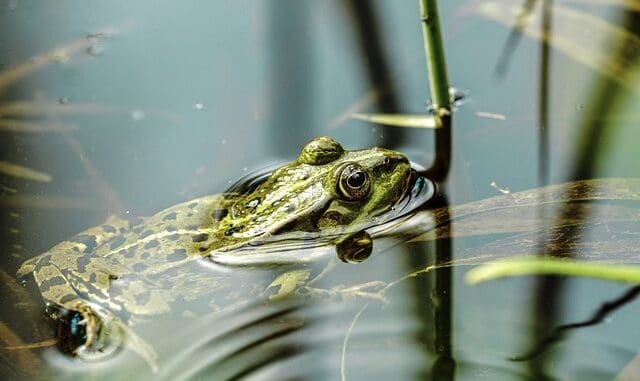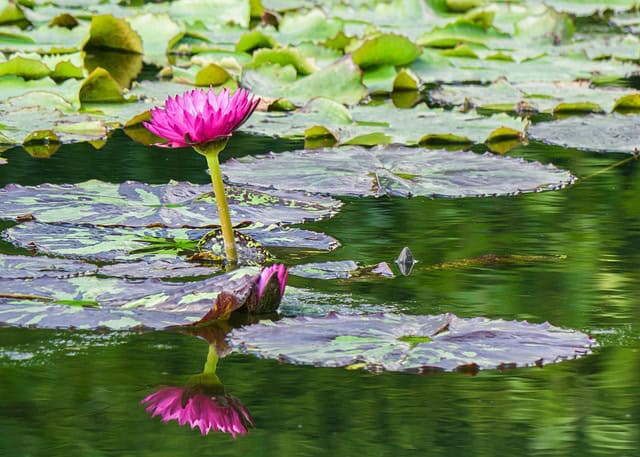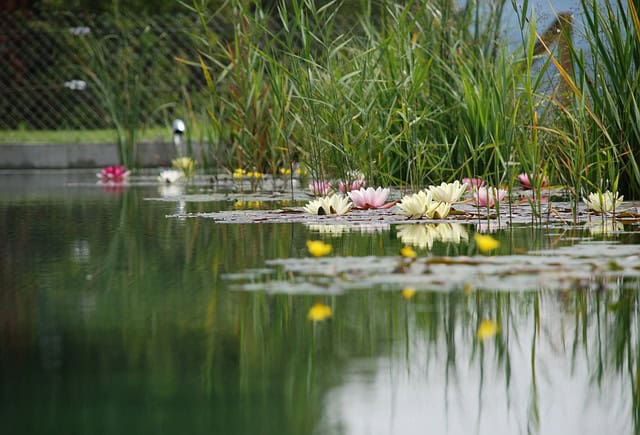
Green Councillor Kevin Pressland is a passionate campaigner for nature and the natural environment. His understanding of the threats faced by the natural world is based on expertise gained from a 40-year career in horticulture, garden design and sustainable land management:
In the last 100 years 500,000 ponds in the UK have been lost https://www.wlgf.org/Pond_numbers_conservation.html this includes many areas of Thanet.
There is a great opportunity to create more ponds. Those privileged with a garden should seriously consider one. This would potentially help reduce rainwater runoff, bring biodiversity into your garden and can greatly improve garden aesthetics and tranquillity.
In December 2023 new legislation came into force for new developers to comply to a 10% increase in biodiversity net gain above the biodiversity level that was on a proposed new development site in the first place. Pond inclusions on developments would not only help developers meet these biodiversity net gain criteria they would again help reduce rainwater runoff whilst creating great habitats for wildlife and enjoyment for new residents.

They are like magnets for so much wildlife and can improve people’s enjoyment of their gardens with relatively little maintenance requirement. Educating children about water and being sensible around it is important and will enthuse children to the wildlife that lives both within ponds and that visit the pond https://content.freshwaterhabitats.org.uk/2013/09/Creating-Garden-Ponds-for-Wildlife.pdf?
Water reservoirs for farms should surely be landscaped with some graduated sides, not the death traps of vertical sides that for some reason many seem to have. One hopes the government’s environment land management scheme will now prompt farmers to be more conscious of the way they set up any new reservoirs on their farms and adjust the current ones accordingly. The farm reservoir near the APC depot at Cliffsend currently has vertical sides and any wildlife that tried to drink water there would be extremely lucky to get out. One hopes they will adjust this reservoir so wildlife can access a drink and get out alive. Friends of mine were lucky not to lose their dogs one summer.
Together with the rainwater catchment systems, serious consideration should be given to include ponds on new developments, caveats relating to management and safety considerations would need to be highlighted to any new purchasers. One hopes developers will consider this approach.
https://kentarg.org/wp-content/uploads/2022/01/State-of-Kents-Amphibians-FINAL.pdf
The Kent countryside, including Thanet, has lost 75% of its ponds in the last 100 years.
The main types of ponds found in Kent are temporary/seasonal ponds that dry out for part of the year, normally during summer, providing a very important habitat for specialist wildlife and often forming the most diverse habitat of all pond types.

Agricultural ponds once provided the main source of water for farm animals and were used for drainage. Some were created to extract clay for building or to spread to improve land. Village ponds were traditionally used as a water source for both humans and animals (and in the past bathing). Additionally, village ponds provided a source of water for agricultural crops during drought periods. Dew ponds were man-made ponds placed on the top of a hill to provide water for animals where a natural supply of surface water may not be available. On the Kent Downs these were present on the chalk slopes.
Traditionally, ponds were used as a water source for people and livestock with most villages having one. Some had flint bases to enable carts to be driven in and have their wheels washed. As water became more readily available, ponds were not as necessary in daily life therefore many became neglected. Even though numbers are beginning to increase, the majority of today’s ponds are found in schools and private gardens. Ponds in the general countryside and landscape are still declining mainly due to drainage and land use intensification.
Some councils use health and safety as an excuse to block ponds in parks. This approach is clearly farcical particularly in coastal areas like Thanet. Let’s hope Thanet council begins to be more open and enthusiastic to pond creation in public spaces, throughout Thanet.
Education from a safety perspective is clearly important and can be addressed with safety interpretation signs near to ponds in public spaces. However, there has to be public personal responsibility too.
Want to know more about ponds?
https://kenttreeandpondpartnership.wordpress.com/events/
https://www.kentwildlifetrust.org.uk/actions/how-create-mini-pond

